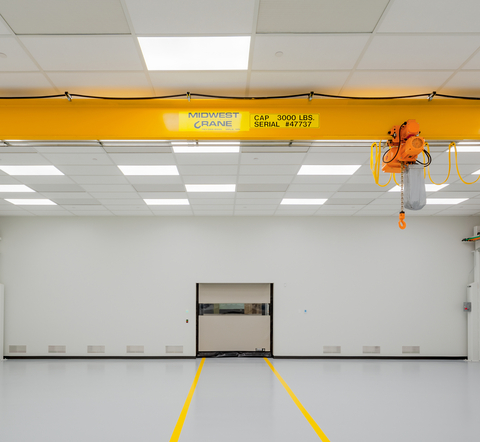
ALPHARETTA, Ga.– Spectrum Plastics Group, a global solutions provider for development through scaled manufacturing of critical polymer-based components and devices for medical and other demanding markets, has just completed a major renovation and cleanroom expansion at its Minneapolis, MN facility.
With our continued growth in implantable products and critical to function medical components, it was important that we invest in additional state-of-the-art cleanroom capabilities to support current and future opportunities. The increasing quality expectations in the manufacture and assembly of complex products and components make controlled environments a requirement. Beyond implantables, there is a continued need for particulate-free products made from specialized materials for the medical device, life sciences, and aerospace industries, due to fluid path concerns, bodily contact, or optical clarity.
Improvements to the 105,000-square-foot facility include additional molding machine capacity, renovation of office and employee amenity space, “and additional updates that reflect the modern state-of-the-art and highly technical molding services we provide our customers,” said Paul Schmeling, Spectrum’s Senior Vice President of Specialty Molding.
The new injection molding machines are electric, typically 110 tons or less, reflecting the growing demand for the small, complex, high-precision parts required by the medical and defense industries. Office renovations include open, collaborative workspaces that allow Spectrum’s quality and engineering teams to work more closely with customers on concepts, design for manufacturability, mold designs, and other manufacturing solutions.
The Class 8 cleanroom manufacturing space was expanded to a total of 10,000 square feet to accommodate increased customer demands. The cleanroom is designed to manage the special challenges of cleanroom molding and workflow—for example, the drying of materials occurs outside the cleanroom and can only enter the cleanroom at the press. Special processes such as high-purity nitrogen and oil-free compressed air can be used to reduce risk of contamination. Real-time data capture, process quality monitoring, and in-cavity pressure monitoring are all part of the ultra-modern digital technology framework in the cleanroom.
“These expanded capabilities allow us to remain a preferred supplier of precise, tight-tolerance injection molding and assembly,” said Schmeling. “As customers bring us smaller and more innovative products to manufacture, that require more engineered resins and specialized processes, we look forward to solving their design challenges and providing total solutions that meet or exceed their project needs, including final packaging and post-production support.”

